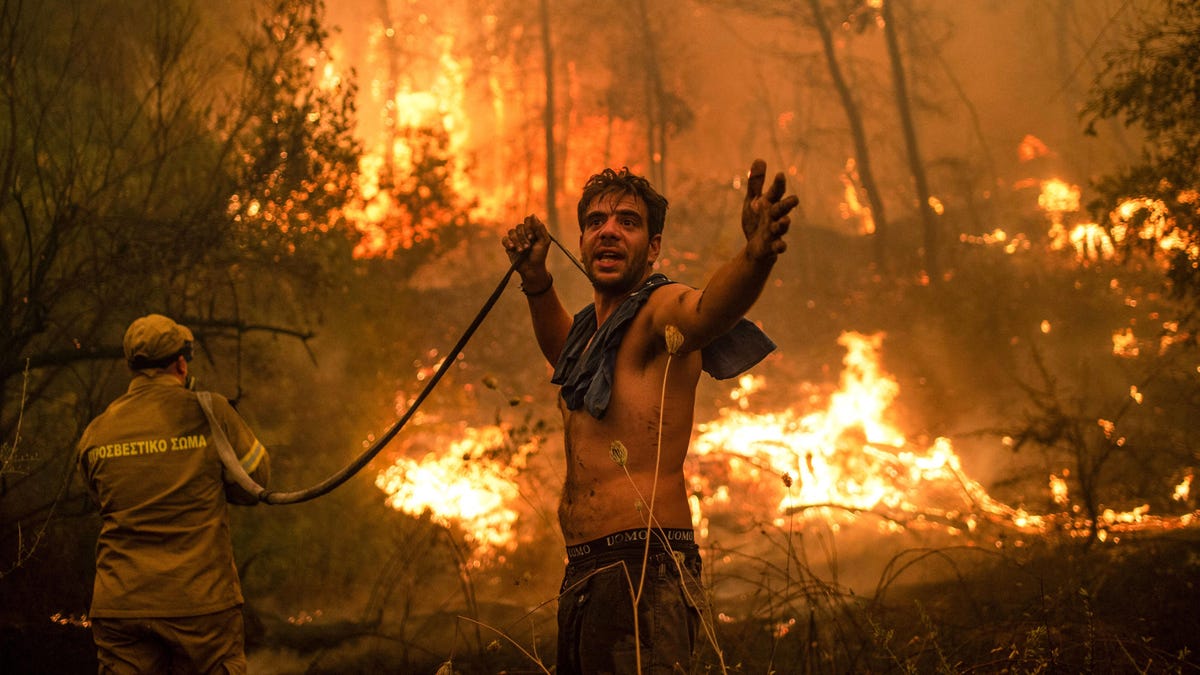On August 9, The Intergovernmental Panel on Climate Change (IPCC), the leading agency of the study of climate science, has published its most detailed analysis concerning the state of climate havoc and the human’s role in it.
A total of 234 scientists from 66 countries have contributed to writing the first chapter as a 41 page summary of the IPCC’s sixth assessment report.
It based its research upon around 14,000 research papers to come up with conclusions on the impact of human activities on the earth’s climate.
The report has come less than three months before the next major global climate summit in Glasgow, UK.

IPCC Working Group I Co-Chair Valérie Masson-Delmotte said, “This report is a reality check. We now have a much clearer picture of the past, present, and future climate, which is essential for understanding where we are headed, what can be done, and how we can prepare.”
The report asserts that extreme weather events are on the rise, and the emergence of frequent heatwaves and droughts result from human-induced warming of the climate.
Such extremes of these events can also make wildfires more frequent, said the scientists. Continuous dependence on fossil fuels which was not there 2000 years ago, has resulted in these extreme scenarios.
The next Global climate summit in Glasglow would be crucial because governments worldwide would join it and be able to make pledges and take resolutions to reduce this human-induced warming.
Human’s role in the changing of the climate is “unequivocal”, asserts the report. It’s the humans who have caused the world to heat up to 1.1 C since 1850-1900.
Though this is an average amount, some geographical areas are encompassing and getting heated up faster. For instance, the Arctic is getting heated up twice as quickly as the global rate, wrote the Independent in its analysis.
The assessment believes that the temperature could further shoot up to an unbearable extent if emissions continue similarly.
One significant instrument of measurement used by the IPCC to understand these projections is the “climate sensitivity”, which focuses on how much long-term warming of the planet could be expected if the carbon dioxide emissions are to double compared to the pre-industrial emissions.
The average estimate put forward by the report is three °C. However, over uncertainties, it decreases the figure to a probable range of 2.5–4 °C based on previous climate records.
It could be compared with 1.5–4.5 °C, the broader scope for sensitivity reported in the IPCC’s last climate assessment, released in 2013.
The narrowing of the climate sensitivity has strengthened the belief of the scientists in their future projections for different situations.
According to the report, with a moderate level of emissions, average global temperatures will rise by 2.1–3.5 °C, above the goal of 1.5 to 2°C set by the Paris Climate Agreement.
Even with low emissions, the global temperature is likely to surpass the 1.5°C limits in the coming years, and then it would drop towards the end of the century, wrote nature in its analysis.
Maisa Rojas, a coordinating lead author on the report and director of the University of Chile’s Center for Climate and Resilience Research in Santiago, said, “Is it still possible to limit global warming to 1.5 °C? The answer is yes,” says. But unless there are immediate, rapid, and large-scale reductions of all greenhouse gases, limiting global warming to 1.5 °C will be beyond reach.”
Moreover, another coordinating lead author on the report, Xuebin Zhang, a climatologist at Environment Canada in Toronto, Ontario, said, “The evidence is everywhere: if we don’t act, the situation is going to get bad…We are not going to be hit just by one thing. We are going to be hit by multiple things at the same time…Climate change is happening, and people actually feel it.”
The Guardian highlights one point-blank part of the report, stating, “Many changes due to past and future greenhouse gas emissions are irreversible for centuries to millennia.”
Greenhouse gas emissions and their effect on oceans have put the whole world at a very immediate level of danger. The world’s ocean and ice absorb 96% of the global heating, and the seas will keep rising, and ice will keep melting till it engulfs the coastal cities.
However, Dr. Friederike Otto, a report author and associate director of the Environmental Change Institute at the University of Oxford, said that though the report’s findings have left everyone in a state of dazzle, “we are not doomed”.
Along with the other report authors, she has urged the people to work on reducing the emissions. She asserted that Every small step to reduce greenhouse gas emissions counts and will help us avoid the ultimate disaster of climate change.
Dr. Helene Hewitt, a report author, and scientist at the UK’s Met Office said, “Every bit of warming really does matter. It’s only by limiting warming that we’ve got a chance of limiting the larger [risks] that we might see in the longer term.”
Also Read: Climate Chief Alok Sharma Warns Of Climate “Catastrophe” Ahead Of The Glasgow Climate Summit